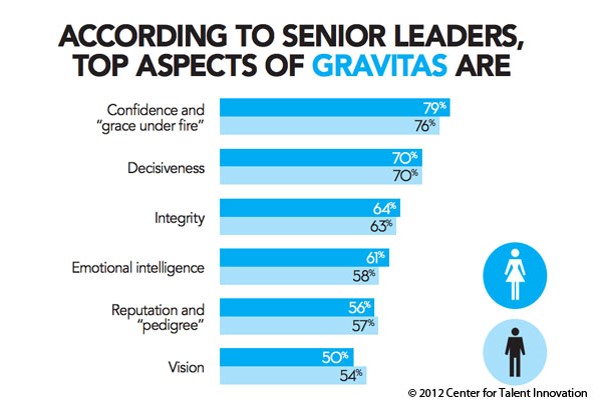Do you wonder why some communications or proposals get a response and others don’t? Do you want to get a better response rate?
4 Presentation Mistakes That Rob You of Influence
What's Your Presentation Worth?
It doesn't matter whether it's a raise, a promotion, or a large capital expenditure. Public speaking pays. Are you losing money every time you speak? Do you know why? You can be dressed to the nines, but a Brooks Brothers suit won't help if your presentation doesn't match your million dollar look. I remember the first time I met Cathy (not her real name). Her manager, a Vice-President, called me in to coach her. Cathy was having difficulty getting promoted.
When I met Cathy, I was surprised. She could have been on the cover of Forbes magazine. Cathy exuded executive presence visually. The challenge was when she presented her ideas to senior management, she immediately lost credibility. By not presenting a strong recommendation, and using uptalk and wimpy words, Cathy's value was diminished. As a result of my coaching, she learned to speak powerfully and was promoted to VP. Now that's a return on investment.
Another client of mine was a CEO of a multi national healthcare company. His challenge was to convince management to invest in a $300 million facility in Europe. It would take 5 years from beginning construction to licensed facility. Clinical trials for a vaccine were 3 years away. This was an investment with high risk. He didn't even know if the vaccine would work. The CEO's presentation had to be clear, understandable, and effective in persuading management that the risk was worth it. The CEO got the funding. The facility was built. The product sold over $1 billion per year.
He said, “Without that presentation and convincing the executive committee to invest, we wouldn’t have the product.” That's MAJOR ROI!
Speaking leads to influence and influence leads to success. It's about how you articulate your value. How much money is left on the table due to a weak presentation? A family member worked for a doctor's office handling insurance claims. She wanted a raise but wasn't having success. She realized the claims were being denied because they contained the wrong codes.
So she diligently nudged the doctors to apply the correct codes and helped them to do just that. The result was that fewer claims were being rejected. I howled, "You mean to tell me they are collecting on more claims because of you? You're directly impacting their bottom line! You're increasing their cash flow! Tell them that." She did, and she got her raise. Again, there is an ROI from effective presentations.
It doesn't matter whether you seek a raise, a promotion, or approval on a large capital expenditure: public speaking pays. The payoffs for you, the speaker, are increasing sales, earning a raise, getting a promotion, receiving investor capital, and more. And when you have excellent presentation skills you may even be paid to speak. Ka Ching Ka Ching.
Are you in the middle of a merger? Are you launching a new product? Do you have to give a presentation to your sales force? You won't have a second chance. When your presentation is make or break, contact DiResta Communications, Inc.
Success Means Never Having to Say You're Sorry
 Love Story was a popular move in 1970. It starred Ryan O'Neill and Ali McGraw. In one scene they have a fight and go their separate ways. O'Neill finds McGraw after he cools off and apologizes for the fight. She stops him and says through her tears, "Love means never having to say you're sorry." I don't know if most people in conflict would agree with that.
What people may agree with is the overuse of the word "Sorry" in the workplace. This is especially prevalent among women. When I speak to organizations about executive presence and confidence, I advise women to avoid weak speak or what I call wimpy words. Certain modifiers such as "only," or "just" weaken conviction. That is, the speaker negates everything that follows the words "only" or "just". For example, "This is just an idea," is less powerful than saying "This is an idea."
Love Story was a popular move in 1970. It starred Ryan O'Neill and Ali McGraw. In one scene they have a fight and go their separate ways. O'Neill finds McGraw after he cools off and apologizes for the fight. She stops him and says through her tears, "Love means never having to say you're sorry." I don't know if most people in conflict would agree with that.
What people may agree with is the overuse of the word "Sorry" in the workplace. This is especially prevalent among women. When I speak to organizations about executive presence and confidence, I advise women to avoid weak speak or what I call wimpy words. Certain modifiers such as "only," or "just" weaken conviction. That is, the speaker negates everything that follows the words "only" or "just". For example, "This is just an idea," is less powerful than saying "This is an idea."
Related to these two modifiers is the word "sorry". To use the word "sorry" in emails and spoken language is to the detriment of women. An apologetic communication style sabotages leadership and authority. Leaders are perceived as decisive and willing to take a risk. Saying "sorry' too frequently is a way to avoid taking a stand and not be taken seriously.
The word "sorry" is also used as a substitute for "excuse me". Instead of asking the speaker to clarify or repeat, some women will say "Sorry?" rather than use the more effective phrase, "Excuse me?".
There's an app for that
How can women rid this undermining word from their vocabulary? The first step is awareness. Technology to the rescue! Now there is an app that identifies wimpy words when they are used in emails.
The Just Not Sorry extension for Chrome is downloadable at the Chrome app store. The app identifies wimpy words in Gmail by underlining them in red and providing explanations of how the word weakens the message in the email. Whether the reason for using wimpy words is a subconscious lack of confidence or simply a bad habit, this tool can create conscious awareness for women so that they can become more successful leaders and communicators.
After all, success means never having to say you're sorry.
Move the Masses: 3 Speaking Lessons from Martin Luther King
What if you could speak like Martin Luther King? Not everybody will move the masses with their oratory but here is what I've observed- Gifted speakers are born but effective speakers are made. Martin Luther King was one of the most gifted public speakers. But even he studied to master his craft. He developed the ability to move the masses with his mouth. Great leaders in history learned the power of the spoken word and became masters of the tongue. Most of us will not sway the masses but we can inspire and persuade our circle of influence by taking a lesson from Martin Luther King. Here are three techniques he used throughout his speeches to inspire his audience.
Vision. All good speeches start with a vision. Before you begin writing, imagine your ultimate goal. What is your intention? What do you want the audience to see, hear, and feel as a result of your talk? They should be in a better place by the end of your presentation. If they can't see it, they won't follow.
Alliteration. Martin Luther King made good use of rhetorical techniques such as storytelling, metaphor (promised land), (mountain top), and alliteration to inspire the crowds. His famous line "I look to a day when people will not be judged by the color of their skin, but by the content of their character" is frequently quoted by many. Alliteration makes the message memorable.
Passion. The best speech writing is not a substitute for dispassionate delivery. If you sound like you're reading text, you will inspire nobody. Great speakers have a fire in their belly. It's the emotion that moves an audience. So tap into your feelings and talk from the heart. The key word in emotion is motion. When the audience feels the emotion and it's backed up with logic you will move them to action.
The Essence of Executive Presence
 Executive Presence is difficult to describe, but you know when you have it.
And so it goes in the workplace. Clients call me to work on a leader’s “executive presence.” They’ll say the leader needs “polishing” or “gravitas,” but they can’t be specific.
Executive Presence is difficult to describe, but you know when you have it.
And so it goes in the workplace. Clients call me to work on a leader’s “executive presence.” They’ll say the leader needs “polishing” or “gravitas,” but they can’t be specific.
What is clear is that the coaching candidate is stuck at a level. Without the ability to convey executive presence, they lose credibility and don’t advance further.
The myth is that executive presence is about dressing well. Attire is a visual shorthand. At first glance, your audience or stakeholders will determine if you’re a leader by the way you’re dressed. That’s part of it, but it’s only one piece of the puzzle. Have you ever known someone who looks like a million dollars until they opened their mouth?
Take the case of Deborah (not her real name). When I first met her, she looked like Ms. Dress for Success; however, when she presented at meetings she lost credibility with senior management. Deborah hedged, sounded hesitant and wouldn’t put a stake in the ground. Her boss couldn’t promote her to Vice-President and asked me to coach her.
What does this have to do with speaking? The answer is Confidence.
The presenter’s job is to inspire the audience's confidence that he/she is an expert (or at least qualified to speak on the subject). A speaker must have presence on the platform. Deborah discovered that leaders align visual, vocal, and verbal communication to influence. If one of these areas goes out of sync, the message is altered. Deborah learned to convey executive presence and was promoted to Vice-President.
So what exactly is executive presence? It's the missing link between merit and success. The chart above breaks down the aspects of “gravitas” so you’ll no longer say “I’ll know it when I see it.” You’ll be able to recognize and convey executive presence by knowing the components. Whether your platform is a stage or a meeting room, the boardroom or the back room, you’ll be able to assess yourself and project confidence.

